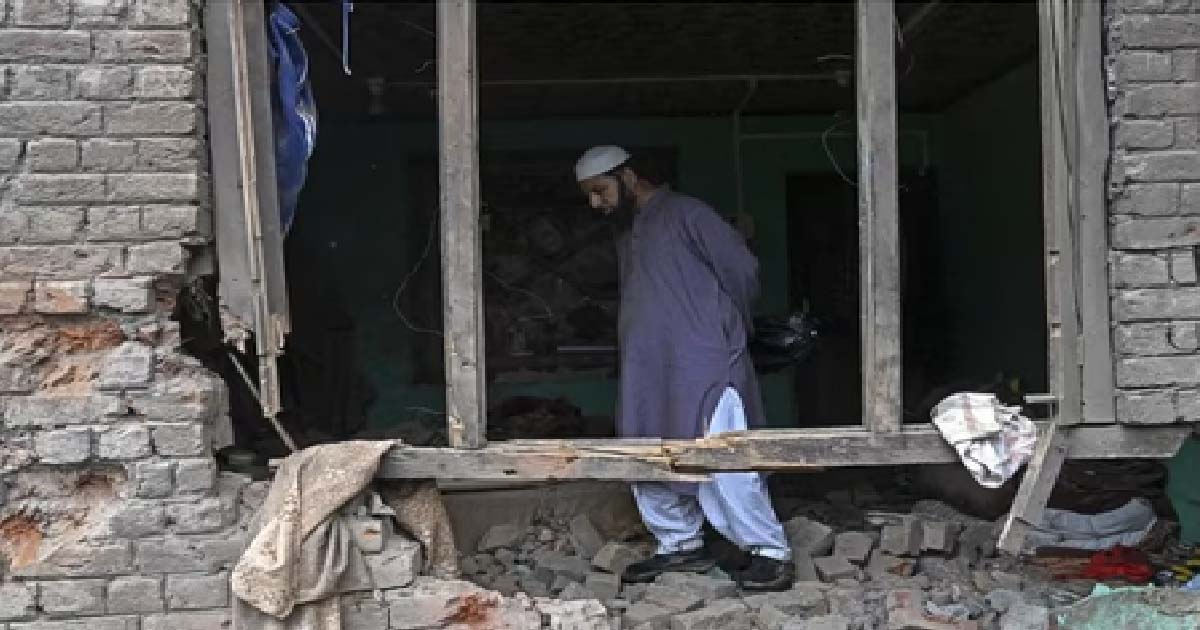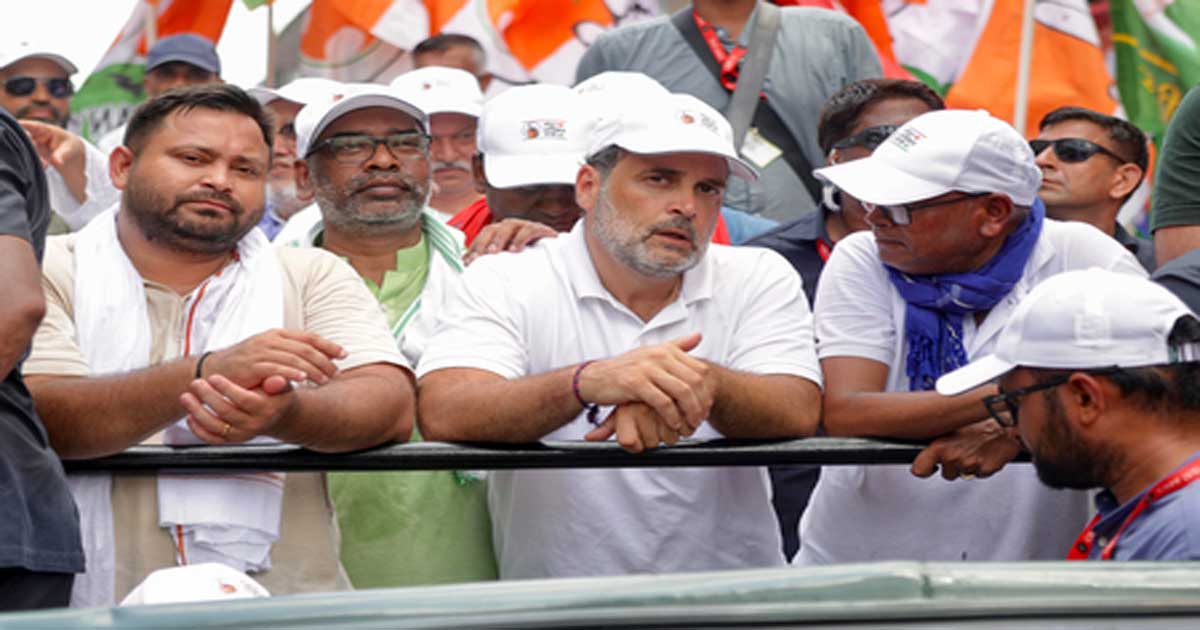National News
Pakistan closes airspace temporarily after India accuses it of using civilian flights as shields

New Delhi, May 10: Pakistan on Saturday shut down its airspace temporarily, hours after India accused the former of using commercial flights as shields amid drone attacks.
The decision, notified through a Notice to Airmen (NOTAM), came amid escalating tensions between the two nuclear-armed neighbours.
The move follows a night of intense drone activity along India’s northern and western borders after Pakistani drones were sighted at 26 locations ranging from Baramulla in the North to Bhuj in the South, along both the International Border and the Line of Control with Pakistan, the Defence Ministry said in a statement.
These include suspected armed drones posing potential threats to civilian and military targets, the Ministry added.
The locations include Baramulla, Srinagar, Avantipora, Nagrota, Jammu, Ferozpur, Pathankot, Fazilka, Lalgarh Jatta, Jaisalmer, Barmer, Bhuj, Kuarbet and Lakhi Nala.
Several of the targeted sites included key airfields, forward military bases, and civil aviation facilities. India successfully repelled each attack.
India accused Pakistan of endangering international air traffic by keeping its airspace open while executing drone and missile operations.
“Pakistan is using civil airliners as a shield, knowing fully well that its attack on India would elicit a swift air defence response. This is not safe for the unsuspecting civil airliners, including the international flights which were flying near the International Border between India and Pakistan,” Colonel Sofiya Qureshi of the Army said at a press briefing on Friday, alongside Wing Commander Vyomika Singh of the Indian Air Force (IAF) and Foreign Secretary Vikram Misri.
Pakistan deployed between 300 and 400 drones, identified preliminarily as Turkish-made Asisguard Songar models, on the night of May 8 and May 9. Many were intercepted using a combination of kinetic and electronic warfare systems, including the Barak-8 and S-400 Triumph missile defence platforms, Akash SAMs, and indigenous anti-drone technologies.
“The sheer scale suggests it was a deliberate military attempt to test our readiness. We responded proportionately,” Wing Commander Singh said at the briefing.
Among the locations targeted were Srinagar airport, the Awantipora airbase, Nagrota, Jammu, Pathankot, Fazilka, and Jaisalmer.
In Ferozpur, a drone attack on a civilian area injured three members of a local family. No Indian military installations were damaged.
Prime Minister Narendra Modi convened a high-level security review meeting late Friday night with Defence Minister Rajnath Singh, National Security Adviser Ajit Doval, and the service chiefs.
Earlier on Friday, PM Modi also met former Chiefs of the armed forces to take their views on the evolving crisis.
Home Minister Amit Shah reviewed the civil preparedness in states along the Pakistan border, particularly around airports and high-value targets.
Crime
Mumbai GRP Arrests 47-Year-old Habitual Local Train Thief; Stolen Goods Worth ₹1.28 Lakh Recovered

Mumbai: The Crime Branch of the Mumbai Government Railway Police (GRP) has arrested a habitual offender involved in a series of thefts on Mumbai’s local trains. The accused was targeting passengers who kept their bags and valuables on the overhead luggage racks and got distracted by mobile phones or fell asleep during their commute.
The accused, identified as Roy Cowgool Vargis (47), with no permanent residence, was apprehended by the Dadar Crime Branch team while loitering near CSMT railway station on October 17.
Vargis was detained and later confessed to his involvement in multiple thefts, including a case registered at the Kalyan Government Railway Police Station (Case No. 1248/2025) under Section 305(C) of the Bharatiya Nyaya Sanhita (BNS).
According to the police, Vargis boarded local trains from CSMT or Dadar (down direction) and observed passengers who had placed their belongings on the luggage racks and became distracted. He would then steal the unattended bags and disembark at the next station. He reportedly employed a similar modus operandi on trains heading in the upward direction from Kalyan and Dombivli.
Following his arrest on October 17, 2025, Vargis led the police to recover stolen goods worth a total of Rs 1,28,499. The recovered items included an HP laptop valued at Rs 70,000, a Dell laptop bag worth Rs 10,000, and a mobile phone valued at Rs 20,000.
Additionally, the police recovered a Titan watch priced at Rs 12,000, a Bluetooth speaker and headphones together worth Rs 4,000, and two other items valued at Rs 13,499 and Rs 9,000 respectively. Several other miscellaneous items were also seized as part of the recovery.
The operation was conducted under the leadership of M. Rakesh Kalasagar, Commissioner of Police (Railways), Mumbai, and Javed Khedkar, Senior Police Inspector, Crime Branch, GRP Mumbai.
The investigation team included officers from the Dadar Crime Branch Unit: API Mangesh Khade, PI Rajesh Bhadale, PSI Ganesh Harishchandre, and police personnel Rakesh Bhamre, Mahendra Kadile, Prashant Saluke, Prashant Redekar, Sujeet Magade, Gopal, Akshay Desai, and Vishwajeet Nagare.
Mumbai Press Exclusive News
TTP, ISKP, LeJ and others eye escalated attacks amid Pakistan army’s vulnerability

New Delhi, Oct 21: The Pakistan army has been caught in several embarrassing situations in recent times. While Operation Sindoor exposed the fault lines within the Pakistan army, it has suffered huge casualties at the hands of terrorist groups, all of which it created.
Pakistan may have entered into a delicate truce with the Taliban, but many question how long it will last. The rate at which the Tehreek-e-Taliban Pakistan (TTP) has created losses for the army has now emboldened other terror groups to take on the establishment.
Pakistan watchers and security experts say that there are many outfits which want the establishment thrown out. The TTP, Lashkar-e-Jhangvi (LeJ) and the Islamic State Khorasan Province (ISKP) want the rule of Islam established in Pakistan and the establishment to be overthrown.
The LeJ has focused largely on sectarian violence and has targeted the religious minority. It is not in the good books of the establishment, and in the near future, it could expand the scope of its attacks.
It has in the past carried out attacks against the Pakistan establishment, and the worry for Islamabad now is that the LeJ could go back to aligning either with the ISKP or TTP. The LeJ has, in the past, aligned with both these groups separately and hence a repeat of this cannot be ruled out. The ISKP, which was roped in Pakistan to fight against the TTP and Afghan Taliban, may not take a backseat due to the prevailing truce.
The ISKP had primarily joined hands with the Pakistan establishment to battle against the Afghan Taliban. However, if both sides have made peace, then the ISKP may back out. It is more likely that the ISKP may join hands with the LeJ rather than the TTP. The TTP is perceived to have the support of the Afghan Taliban.
Moreover, the ISKP was formed by former members of the TTP, and hence, the two coming together is difficult. Whether or not these groups come together or not, they are well aware of the weakness within the Pakistan army.
Intelligence Bureau officials say that, as per their assessment, even if these groups fight individually, they are in the days to come scale up attacks against the establishment. Pakistan is not even in a position to seek the support of the Lashkar-e-Tayiba or Jaish-e-Mohammad to battle against these groups. The Jaish-e-Mohammad has had a blow-hot, blow-cold relationship with the establishment. Further, if it is asked to fight against the TTP, the outfit may witness a split.
The Jaish-e-Mohammad is sympathetic towards both the Afghan Taliban and TTP and hence may not join the establishment. The case of the Lashkar-e-Tayiba is similar. While this outfit has never rebelled against the establishment, there was a chance of a major split when Pakistan was helping the US in the war in Afghanistan. Many cadres were unhappy with this stance and had even threatened to walk away and join the Taliban in Afghanistan.
While the threat of these groups spiralling out of control looms large, the Pakistan army has other problems, and that is in Balochistan.
The Baloch groups are driven by ethnic nationalism and secular separatism. They are seeking an independent proving. The Baloch groups in recent years have caused immense embarrassment to the Pakistan army. They have primarily targeted Chinese nationals and investments apart from the army. These groups too have realised that the army is weak and with Pakistan battling on many fronts, it would gear up for a bigger fight in Balochistan also.
National News
‘Political deceit’, JMM blames INDIA bloc allies for no seat-sharing pact in Bihar

Ranchi, Oct 21: The Jharkhand Mukti Morcha (JMM) on Tuesday launched a sharp attack on its INDIA bloc allies, accusing them of keeping the party “bewildered” over seat-sharing arrangements for the upcoming Bihar Assembly elections and forcing it to withdraw from the contest.
As the Bihar polls draw closer, internal tensions have surfaced within the Mahagathbandhan, with the JMM announcing its exit from the alliance just a day after declaring plans to contest six seats independently.
The decision, made public by Jharkhand Minister and senior JMM leader Sudivya Kumar in Giridih, came amid what he termed “political cunning” by the Congress and the Rashtriya Janata Dal (RJD). Kumar alleged that the senior partners had undermined the JMM’s position and betrayed the principles of coalition politics.
Speaking to media, JMM spokesperson Manoj Kumar Pandey said, “Somewhere, a situation of confusion has been created that has left us bewildered. We did not want to be excluded from the alliance and made every possible effort, but unfortunately, we failed in our attempts. It is sad and unfortunate that political deceit or broken trust was exercised against us, which could have adverse effects on the INDIA bloc.”
“Will the alliance work like this only? We always supported our allies. We have always given them more. We even made their party leaders ministers. They were able to see the Assembly because of us. I am openly saying this. Even after this, if something like this happens with us, then it is wrong,” he added.
Reacting to the development, Congress leader Rakesh Sinha said the JMM deserved to get seats for the upcoming polls, but Congress should not be blamed for it.
Speaking to media, Sinha said, “I believe the Jharkhand Mukti Morcha is a natural ally, and naturally, it should get seats in Bihar. However, what circumstances arose and what situations developed can only be explained by the leadership, whether from the Rashtriya Janata Dal or the Jharkhand Mukti Morcha. Discussions did take place, and two representatives from here also went to the talks. What happened there in Bihar, I am not aware, but JMM should have got the seats in Bihar.”
Sinha, however, clarified that the Congress should not be blamed for the fallout.
“The Congress has always made sacrifices for the sake of the alliance. We want the alliance to be formed with full strength because this is a fight to protect democracy and the Constitution. The Congress Party has consistently shown its commitment and sacrifice within the alliance,” he said.
-

 Crime3 years ago
Crime3 years agoClass 10 student jumps to death in Jaipur
-

 Maharashtra1 year ago
Maharashtra1 year agoMumbai Local Train Update: Central Railway’s New Timetable Comes Into Effect; Check Full List Of Revised Timings & Stations
-

 Maharashtra1 year ago
Maharashtra1 year agoMumbai To Go Toll-Free Tonight! Maharashtra Govt Announces Complete Toll Waiver For Light Motor Vehicles At All 5 Entry Points Of City
-

 Maharashtra1 year ago
Maharashtra1 year agoFalse photo of Imtiaz Jaleel’s rally, exposing the fooling conspiracy
-

 National News1 year ago
National News1 year agoMinistry of Railways rolls out Special Drive 4.0 with focus on digitisation, cleanliness, inclusiveness and grievance redressal
-

 Maharashtra11 months ago
Maharashtra11 months agoMaharashtra Elections 2024: Mumbai Metro & BEST Services Extended Till Midnight On Voting Day
-

 National News1 year ago
National News1 year agoJ&K: 4 Jawans Killed, 28 Injured After Bus Carrying BSF Personnel For Poll Duty Falls Into Gorge In Budgam; Terrifying Visuals Surface
-

 Crime1 year ago
Crime1 year agoBaba Siddique Murder: Mumbai Police Unable To Get Lawrence Bishnoi Custody Due To Home Ministry Order, Says Report












